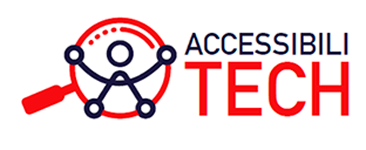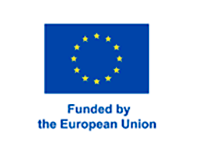Capella Assessments: Empowering Lifelong Learners Through Competency Demonstration
In today’s fast-paced, skill-driven job market, earning a degree is no longer about simply checking off course credits—it’s about proving you have the knowledge, abilities, and mindset to succeed in a real-world environment. Capella University’s assessment model is a direct response to this shift, providing a competency-based approach that ensures students not only learn but demonstrate what they’ve Capella Flexpath Assessment. This article explores how Capella Assessments support lifelong learners and why this approach is increasingly relevant in modern education and professional development.
The Foundation: Competency-Based Education
Capella’s academic structure centers on competency-based education (CBE)—a system where learning is measured by how well students can demonstrate specific, career-relevant competencies. This is in contrast to the traditional model where success is judged by test scores, attendance, or seat time.
At Capella, every course is mapped to clear competencies. For example, a course in organizational leadership might assess a student’s ability to apply strategic planning models, manage team dynamics, and evaluate business performance metrics. These are not just academic goals—they’re skills employers expect in the workplace.
What Are Capella Assessments?
Capella Assessments are project-based assignments that allow students to show mastery of course content in ways that reflect real-world application. Rather than taking multiple-choice exams or writing generalized essays, learners engage in practical tasks such as:
- Creating a business plan
- Designing a curriculum
- Drafting a public health proposal
- Conducting a data analysis
- Writing a policy recommendation
These assessments are carefully crafted to simulate actual job tasks, helping students bridge the gap between theory and practice.
Lifelong Learning and Career Transitions
Capella’s model is particularly well-suited to lifelong learners, including working professionals, career changers, and adult students returning to education after a long break. Many learners already possess a wealth of experience, and Capella allows them to build upon this foundation by focusing on measurable competencies.
For career switchers, assessments provide a concrete way to gain and prove new skills. For example, a teacher moving into instructional design can complete assessments that mirror tasks they’ll encounter in their new role, such as building e-learning modules or evaluating learning technologies. Upon graduation, they not only have a degree—they have a portfolio of relevant work.
Flexibility Through the FlexPath Format
One of Capella’s key innovations is the FlexPath learning format, which offers self-paced progress through a subscription-based model. Students can complete as many assessments as they’re able within a 12-week term FPX Class Help, making it ideal for self-motivated individuals who want to accelerate their education.
Since progress is based entirely on completing assessments, FlexPath students don’t attend live classes or follow weekly deadlines. Instead, they read course materials, engage in self-directed learning, and submit assessments when they feel ready. This format supports true mastery, not just temporary performance.
The flexibility of FlexPath also means students can:
- Move quickly through content they already know
- Take more time on new or challenging material
- Balance school with full-time work, caregiving, or other responsibilities
- Save money by finishing more assessments per term
Feedback-Driven Improvement
Capella Assessments are graded using detailed scoring guides (rubrics), which clarify expectations for each competency. Rather than just receiving a pass/fail or a letter grade, students get specific feedback on what they did well and where they need to improve.
If an assessment does not meet the required level of proficiency, students are given the chance to revise and resubmit. This iterative approach mirrors real-world work, where professionals often adjust and refine their work based on stakeholder input or performance reviews.
This process of submission, feedback, and resubmission nurtures a growth mindset—students learn that improvement is part of the journey, not a sign of failure.
The Role of Assessments in Skill Validation
Employers today want more than transcripts. They’re looking for evidence of skills, especially in fields like information technology, business, education, and healthcare. Capella Assessments serve as professional proof points. Completed projects can be showcased in portfolios, discussed in interviews, or presented in promotion evaluations.
Students can leave their programs with:
- A capstone project that aligns with their industry
- Case studies and reports relevant to their field
- Presentations or videos that demonstrate communication skills
- Research or strategy documents showing critical thinking
In many programs, these assessments even align with certification standards nurs fpx 4045 assessment 3, helping students meet requirements for industry credentials.
Supporting Students Through the Assessment Process
Capella’s learning environment is designed to help students succeed in this assessment-driven format. Available resources include:
- Faculty who act as evaluators and content experts
- Academic coaches who help with goal setting and time management
- Tutors for writing, math, and subject-specific support
- The Capella Library and writing center for research and citation guidance
- Tech support for the learning management system
These resources ensure that learners have the support they need, regardless of their background or prior experience with online education.
Real Stories, Real Outcomes
Capella alumni frequently report that the assessments they completed during their programs were instrumental in helping them advance in their careers. Whether it was a nurse designing a patient education plan or an IT specialist writing a cybersecurity policy, these practical projects often mirror the work they eventually take on in their roles.
This is especially important in fields where regulatory compliance, strategic thinking, or data-driven decision-making are essential. Capella students graduate having already practiced these skills.
Conclusion
Capella Assessments are more than academic tasks—they’re a vehicle for empowering learners to take control of their education, prove their competencies, and step confidently into new roles or industries. By replacing exams with authentic demonstrations of skill, Capella ensures that graduates are not just educated—they’re prepared.
For lifelong learners seeking flexibility, relevance, and career nurs fpx 4065 assessment 5, Capella’s approach to assessments offers a powerful, personalized pathway to success.
More Articles:
Capella Assessments: Building Career-Ready Competence One Assignment at a Time
Capella Assessments: The Engine Behind Purpose-Driven Online Learning
Capella Assessments: The Practical Path to Academic and Professional Mastery


